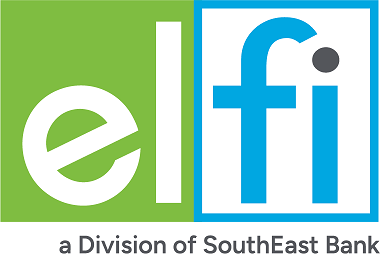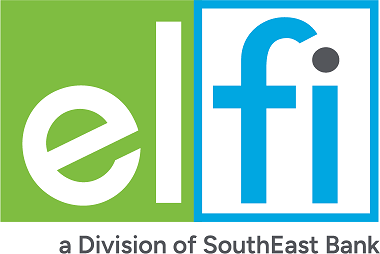Curious about whether you're eligible for financial aid and if completing the FAFSA is worthwhile? We explain the eligibility criteria to help you figure it out.
Basic Eligibility Requirements
There are some eligibility criteria you need to meet in order to qualify for federal student aid:
- Complete the FAFSA and agree to use federal student aid for educational purposes.
- Be a U.S. Citizen or eligible non-citizen.
- Have a valid Social Security number (with the exception of student from the Republic of the Marshall Islands, Federated States of Micronesia, or the Republic of Palau).
- Be enrolled, or accepted for enrollment, as a regular student in an eligible degree or certificate* program at a college or university that participates in federal student aid.
- Have a high school diploma, the recognized equivalent of a high school diploma* (including a General Educational Development (GED) certificate), or have completed a high school curriculum in a home school setting that satisfies the state’s requirements for home schooling.
- Students who first enrolled in an accredited college or career school before July 1, 2012, or are enrolled in an eligible career pathway program, may qualify by satisfying alternate criteria, such as passing an approved ability-to-benefit test or completing six credit hours or equivalent course work toward a degree or certificate.
- Not be in default on a federal student loan.
- Not owe a refund on a federal student grant or loan overpayment.
- Maintain satisfactory academic progress.
- Provide consent and approval to have your federal tax information transferred directly into your FAFSA. Your FAFSA Contributors must also provide consent and approval.
- Students with intellectual difficulties may still be eligible for federal student aid. You need to be enrolled in a comprehensive transition and postsecondary (CTP) program, meet all basic eligibility requirements, except for the requirement of a high school diploma or GED, and you aren’t required to pursue a degree or certificate.
Note: If you do not meet these criteria, ask your school if they would still like you to complete the FAFSA®.
Federal Student Aid Requirements
To qualify for federal student aid, students must:
- Complete the Free Application for Federal Student Aid (FAFSA®)
- Comply with verification requirements, if the student’s FAFSA is selected for verification by the college or university the student plans to attend or by the federal government.
- Provide all requested material from school within the required timeframes – even if you’re not selected for FAFSA Verification, your school is required to clear up any conflicting information they may identify based on the information you provided on your FAFSA and other financial aid applications.
- For need-based aid, demonstrate financial need and meet the criteria of need-based programs. However, non-need-based aid, like Direct Unsubsidized Loan, Grad PLUS Loan, and Parent PLUS Loan, do not depend on financial need.
Federal Student Loan Eligibility
In addition to the basic eligibility requirements, federal student loans require you to be enrolled in your program at least half-time. The Direct Subsidized and Direct Unsubsidized Loan program has loan limits for the total you can borrow each year, and total aggregate (overall) limits. If you’ve reached annual or aggregate borrowing limits in the federal program, you may need to consider private student loan options.
Federal Student Loan Eligibility for Undergraduate Students
If you are an undergraduate student, you are eligible for:
- Direct Stafford Loans, both subsidized and unsubsidized loans
If your parent is willing to help you by borrowing a loan, they may be eligible to borrow a parent PLUS loan if you are a dependent undergraduate student. However, this is not a loan borrowed by you (the student), it would be borrowed by your parent.
Federal Student Loan Eligibility for Graduate Students
If you are a graduate student, you are eligible for:
- ONLY Direct Stafford Loans unsubsidized loans
- Direct PLUS Loans for graduate and professional students
Federal Student Loan Eligibility for Parents of Students
Parents who want to help their child pay for college, may have an option to borrow a Direct PLUS loan for parents. Parents who wish to borrow a federal Direct PLUS Loan, must be the parent of a dependent (as determined by the FAFSA) undergraduate student.
Parents of independent undergraduate students or graduate students are not eligible to borrow Direct PLUS Loan. However, a parent may have some options if they were to review private parent student loan options.
Federal Pell Grant Limits
Only undergraduate students, who have yet to earn a bachelor’s degree, are eligible for Federal Pell Grants. The Federal Pell Grant is awarded based on financial need, which is determined by your school using your student aid index, SAI. Under the Federal Pell Grant program, you will be limited to the equivalent of six years of Pell Grant funds, or 600% lifetime eligibility. What does this mean? Well, if you are Pell Grant eligible your school will determine your total award amount for the year. That total amount is considered 100% of your eligibility for that year. The actual amount you receive throughout the year will be used to determine your use.
For example, if you are awarded $5,000 for an award year. Your school will give you $2,500 for your fall semester, and $2,500 for your spring semester. You attend during the fall and receive your $2,500 award. You are then unable to attend spring semester, and do not receive financial aid. You would have only used 50% of your Pell lifetime eligibility.
Federal Supplemental Educational Opportunity Grant (FSEOG)
FSEOG is only available to undergraduate students who have yet to earn a bachelor’s degree with exceptional financial need. While there is not lifetime limit on this award, this award will only be offered to students who attend a school who participates in the FSEOG federal student aid program. FSEOG funds are awarded by the school and not by a government agency. Your annual award will be based on your financial need, and the availability of funds at your school.
Requirements Relating to Previously Received Financial Aid Funds
There are a few additional requirements if you have previously-received federal student aid funds. You must:
- Not be in default on a federal student loan or owe a refund on a federal student grant or loan overpayment. If you borrowed in excess of your federal student loan limit, annual or aggregate, you have to return the excess funds. If this has ever applied to you, your school would have contacted you to correct the problem.
- If you fraudulently received federal student aid funds, you must have repaid all the fraudulent funds before you would regain eligibility for federal student aid.
- Not have property subject to a judgment lien for a debt owed to the U.S. government.
Maintaining Federal Financial Aid Eligibility
In order to maintain future eligibility, you do need to continue meeting enrollment requirements and maintain satisfactory academic progress.
Other Federal Financial Aid Requirements
In addition, a student’s eligibility for federal aid may be affected by such factors as remedial coursework, correspondence study, study via distance education and program of study.
Am I Eligible for Financial Aid If My Parents or One of My FAFSA Contributors Are Undocumented?
Your parent’s or a FAFSA Contributor’s citizenship is not a factor in your eligibility for federal student aid. To qualify for federal student aid, the student must be a legal U.S. citizen or eligible noncitizen. It does not matter if the student’s parents are undocumented, under-documented, or foreign citizens.
Beginning in December 2023, a parent or contributor will not need a social security number to create an FSA ID.
Some tips to keep in mind when filing the FAFSA, if the student’s parents are undocumented:
• When filing the FAFSA electronically, the parent SNN field will be blank and disabled.
Note that undocumented students, included DACA students, are typically not eligible for federal student aid. However, there may be other types of financial aid available to these students, private scholarships, or financial aid extended by the school. Also, some states do extend in-state tuition to undocumented students who graduated from a high school in that state. It’s best to reach out to the financial aid office to discuss your situation.
FAFSA Eligibility
When it comes to the FAFSA, the basic eligibility criteria for federal student aid will be considered. Essentially, you need to be a U.S. citizen (or eligible noncitizen) enrolled in a school and program that participates in federal student aid. Not all federal student aid is need-based, however, non-need-based aid is essentially federal student loans.
The FAFSA is used by schools and states to award financial aid from their own programs, which could have their own criteria and income thresholds. Some schools will also require you to file the FAFSA, even to receive merit aid. If you do not meet the citizenship requirements, your school may still ask you to complete the FAFSA to determine your eligibility for financial aid for their own programs.
If you are concerned about meeting the basic eligibility requirements, it’s best to set up some time with your school’s financial aid office to discuss your concerns. They will be able to guide you and let you know which financial aid applications to complete.





















